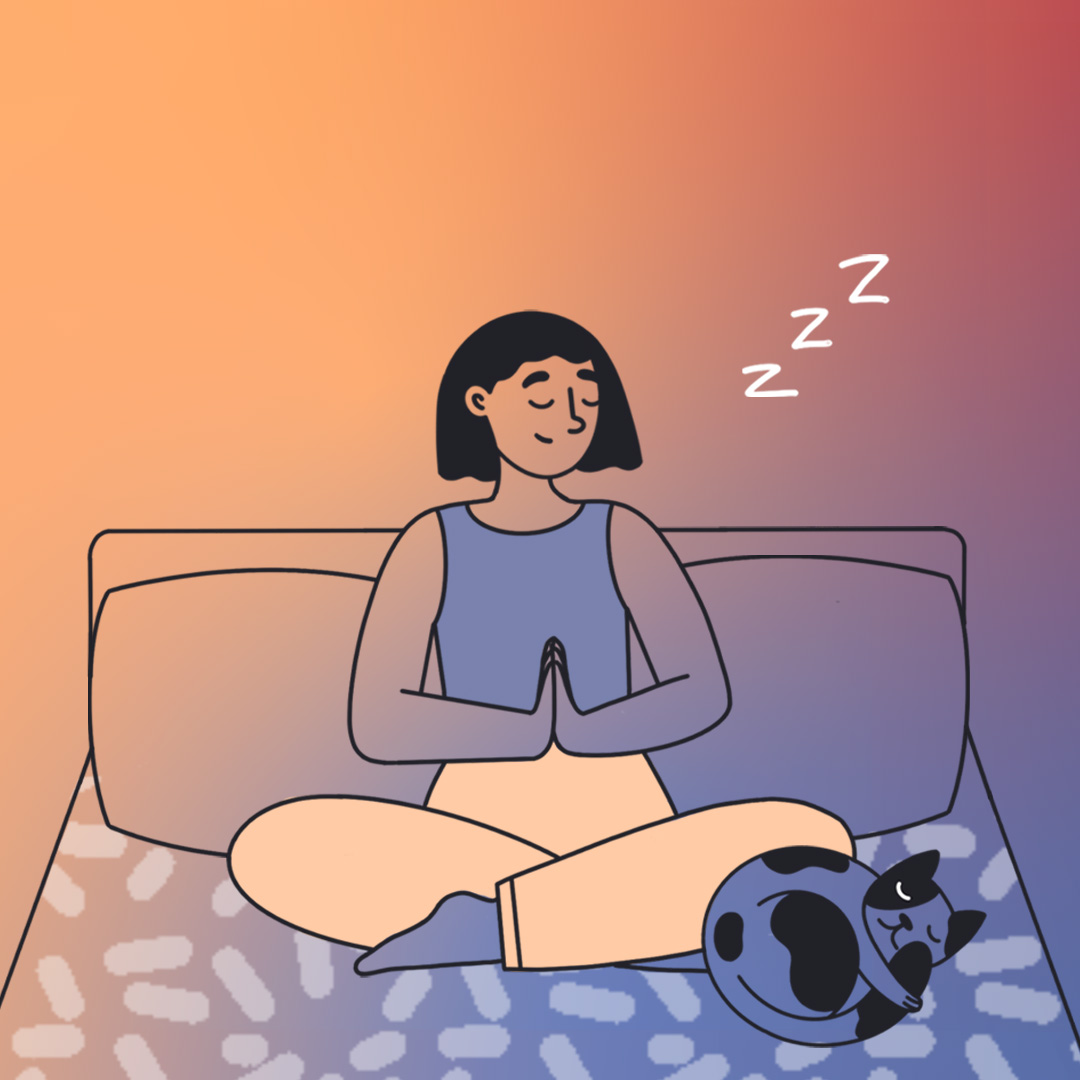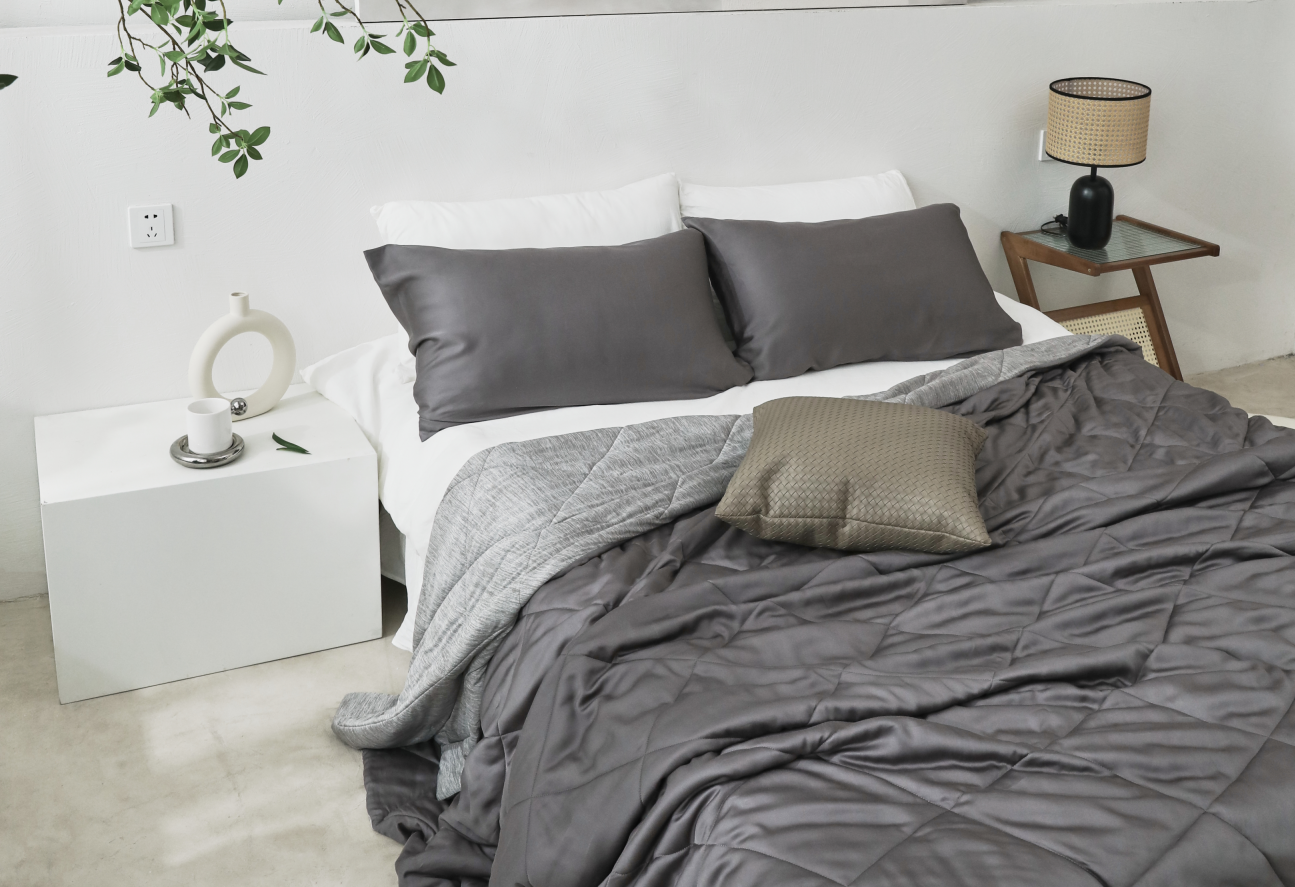When it comes to winding down for the night, it’s important to make sure you have time to de-stress before bed. Stress and anxiety can make it difficult to drift off to sleep, and it can also affect the quality of sleep you’re getting. In this article, we will discuss the interlink between stress and sleep. And with a few simple tips and tricks, so that you can begin to de-stress before bed, ensuring a more peaceful night’s rest.
How stress and sleep are interconnected?
Stress is a state of mental or emotional strain or tension resulting from adverse or demanding circumstances. A 2017 Gallup poll found nearly 80% of U.S. adults suffer from either occasional or frequent stress. Stress can be caused by physical, emotional, or environmental factors and can affect people of all ages. Symptoms of stress can include irritability, fatigue, anxiety, depression, difficulty concentrating, and physical symptoms such as headaches and stomachaches.
People can experience stress in a variety of situations, such as during work, school, or personal relationships. Stress can be caused by environmental factors such as a loud noise or a difficult task, or by emotional factors such as financial worries, relationship troubles, or traumatic events. Any situation that is perceived as challenging or threatening can lead to stress.
Stress and sleep are closely interconnected. Stress can cause difficulty falling and staying asleep, while poor sleep can increase stress levels. Cortisol is a stress hormone that is released in response to stress and helps regulate the body's sleep-wake cycle. Cortisol levels are naturally higher in the morning and lower at night, but when sleep is disrupted, cortisol levels may remain elevated and interfere with the body's natural sleep cycle. Therefore, it is important to practice good sleep hygiene and stress management techniques in order to achieve a healthy balance between stress and sleep.
Why good sleep can improve your mental health?
The relationship between sleep and mental health is complex but very important. A good night's sleep can improve mental health in many ways. First, it helps to restore and rejuvenate the body, which can help to reduce stress and improve mood. Additionally, sleep can help to improve concentration, memory, and problem-solving abilities, which can help you to stay productive and be successful at work and in school. Finally, sleep can help to regulate hormones that affect mood, such as serotonin and dopamine, which can help to reduce anxiety and depression symptoms. All of these benefits can contribute to improved mental health.
Poor sleep can have a negative impact on mental health conditions such as depression, anxiety, and bipolar disorder. Not getting enough restful sleep can cause a person to feel irritable and low in energy, which can worsen symptoms of depression and anxiety. Additionally, poor sleep can interfere with the body’s ability to regulate mood, which will lead to an increase in mood swings and other symptoms of bipolar disorder.
How to de-stress before bed?
After figuring out the relation between sleep and stress, there are numerous strategies for relieving unwanted stress and anxiety. While some sleepers may only use one or two of these techniques, others may opt to mix and match a few of them to get the best results. If stress and sleep are something you struggle with on a regular basis, it is best to consult your doctor to determine what the best course of action is for you.

cr: mattress clarity
Mental meditation
Meditation for sleep is a specific, guided experience that offers a natural sleep aid all on its own, allowing us to let go of the day. There are many types of meditation that can help you de-stress before sleep. Some popular forms of meditation include guided meditation, mindfulness meditation and transcendental meditation.
Guided meditation is a form of meditation that involves a soothing voice to help guide your relaxation. It usually includes a combination of visualization, breathing exercises, and positive affirmations. To do guided meditation, first find a comfortable and quiet spot to sit or lay down in. Close your eyes and take a few deep breaths to allow your body to relax. Then, focus on the voice of the guide, imaging the words they are saying and following their instructions. Finally, be sure to focus on your breathing, allowing yourself to stay present in the moment.
Mindfulness meditation is a type of meditation that helps to bring your awareness to the present moment. It can help to reduce stress and anxiety, improve focus, and increase self-awareness. To do mindfulness meditation, first stay calm and quiet. Close your eyes and start to focus on your breath. Notice the sensations of your breath as it moves in and out of your body. Then, become aware of your physical body and the sensations that you are feeling. Lastly, be mindful of your thoughts and emotions, letting them come and go without judgement or attachment.
Transcendental meditation is a type of meditation that involves repeating a mantra to help bring your awareness to the inner self. To practice this technique, you should focus on a specific mantra, and repeat it for 15-20 minutes. The mantra should be a word or phrase that resonates with you, such as a word that brings you peace or something that you are grateful for. As you repeat the mantra, allow yourself to be present in the moment, focusing on the sound of the words and the sensation of your breath.\
Meditative movement
There are many different types of meditative movement that can help you de-stress before sleep. Popular meditative movement practices include yoga, tai chi, qigong, and mindfulness-based stretching. All of these forms of movement have been proven to help reduce stress, improve sleep quality, and promote overall wellbeing. It is important to remember to take it slow and listen to your body when participating in meditative movement. If you are new to meditative movement, it is best to start with a few simple poses or flows and work your way up to more challenging poses as your body becomes accustomed to the practice.
Take a hot shower
Taking a hot shower or bath can be a great way to relieve stress. The heat can help relax the body and mind, while the physical act of showering or bathing can help take your mind off of whatever is causing your stress. Additionally, the soothing sounds of the water can help to create a calming environment.
Have a cup of herbal tea
Having a cup of herbal tea before bed can be helpful in relieving stress before sleep. Herbal teas such as chamomile, lavender, and valerian are known to have calming and relaxing effects that can help you to relax and drift off to sleep.

Use essential oil
Essential oils contain natural compounds that have calming and soothing effects on the body, making them a great choice for those looking to improve their sleep. Some of the most popular essential oils for sleep include lavender, chamomile, and ylang-ylang. You can use them in an essential oil diffuser to fill your room with calming scents, or apply them directly to skin (diluted with a carrier oil). Essential oils are a great way to help you relax.
Watch relaxed television
While it is important to practice healthy sleep habits, such as avoiding screens and stimulants too close to bedtime, some research suggests that a little bit of relaxed television can help reduce stress and anxiety before sleep. Watching TV can provide a much needed distraction from the stress in your life, allowing you to take a break and enjoy some entertainment. Watching a show, movie, or even a documentary can also help to provide a sense of escapism, enabling you to temporarily forget about the stressors ,drifting off more easily.

Invest in stress-relief bedding
Investing in stress-relief bedding such as a cooling blanket and weighted blanket can be a great way to improve your sleep.
Cooling blankets help keep your body at a comfortable temperature throughout the night, which can reduce nighttime sweating and let you fall asleep faster. Cooling blankets can also help reduce stress and anxiety, as the cool temperature can help relax the body and mind. Additionally, cooling blankets can help reduce the restlessness that often comes with too-warm temperatures. Investing in a cooling blanket can be a great way to improve your sleep and reduce stress. There are cooling blankets made of bamboo and cooling technology fibre, which is more breathable and lightweight than traditional fabrics, making it even more comfortable. These blankets will melt heat away , lulling you into a deep sleep .
Weighted blankets are a popular bedding choice for reducing stress before sleep. Weighted blankets provide a gentle, comforting pressure that can help relax the body and mind. The heaviness of weighted blankets can help regulate the sleep hormones, it helps increase serotonin (a neurotransmitter that helps regulate mood, appetite, and sleep) improve melatonin(a hormone that helps regulate the body's sleep and wake cycles) and reduced cortisol(stress hormone), allowing you to wake up feeling more refreshed and relaxed.


